
-
 Marc Marquez completes perfect Mugello weekend with Italian MotoGP triumph
Marc Marquez completes perfect Mugello weekend with Italian MotoGP triumph
-
Vondrousova warms up for Wimbledon with Berlin title

-
 India still on top in first Test despite Brook fifty for England
India still on top in first Test despite Brook fifty for England
-
Ukraine army chief vows to expand strikes on Russia

-
 United behind Iran war effort, Israelis express relief at US bombing
United behind Iran war effort, Israelis express relief at US bombing
-
Former England fast bowler David Lawrence dead at 61

-
 At least three impacts in Israel during Iran missile attacks, 23 hurt
At least three impacts in Israel during Iran missile attacks, 23 hurt
-
Trump says US strikes 'obliterated' Iran nuclear sites
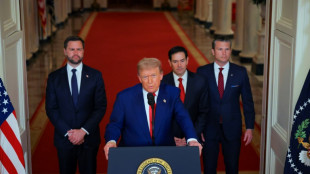
-
 Japan's high-tech sunscreens tap into skincare craze
Japan's high-tech sunscreens tap into skincare craze
-
Tesla expected to launch long-discussed robotaxi service
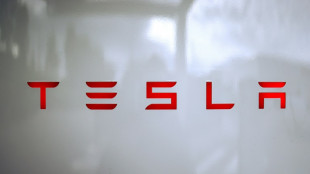
-
 South Korea counts on shipbuilding to ease US tariff woes
South Korea counts on shipbuilding to ease US tariff woes
-
Bombing Iran, Trump gambles on force over diplomacy
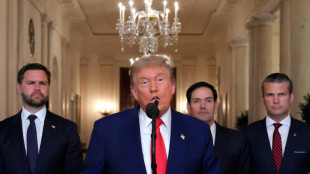
-
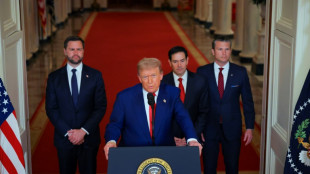 Trump says US attack 'obliterated' Iran nuclear sites
Trump says US attack 'obliterated' Iran nuclear sites
-
Itoje to Valetini: five to watch when the Lions face Australia

-
 Wallabies confident but wary of wounded British and irish Lions
Wallabies confident but wary of wounded British and irish Lions
-
Utopia and fragile democracy at Art Basel fair

-
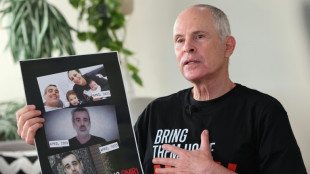 Freed Israeli hostage recounts 484-day nightmare in Gaza
Freed Israeli hostage recounts 484-day nightmare in Gaza
-
River Plate frustrated by Monterrey in 0-0 stalemate

-
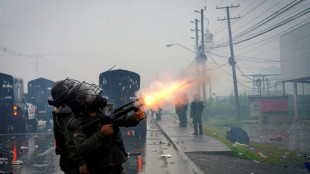 Panama cuts internet, cell phones in restive province
Panama cuts internet, cell phones in restive province
-
Tens of thousands join pro-Palestinian marches across Europe

-
 Coach Penney unsure of return to Super Rugby champions Crusaders
Coach Penney unsure of return to Super Rugby champions Crusaders
-
Trump says US 'obliterated' Iran nuclear sites, threatens more
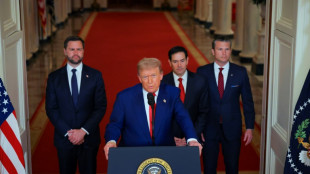
-
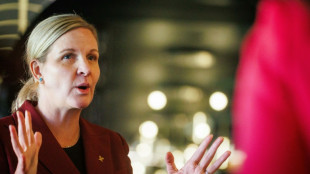 Olympic chief Kirsty Coventry's steeliness honed by hard knocks
Olympic chief Kirsty Coventry's steeliness honed by hard knocks
-
Outgoing IOC president Thomas Bach faced mammoth challenges

-
 Maro Itoje comes of age with Lions captaincy
Maro Itoje comes of age with Lions captaincy
-
Trump says US bombs Iran nuclear sites, joining Israeli campaign

-
 In New York, Vermeer show reveals art of the love letter
In New York, Vermeer show reveals art of the love letter
-
Ex-members of secret US abortion group fear return to dark era

-
 Trump says US launched 'very successful' attack on Iran nuclear sites
Trump says US launched 'very successful' attack on Iran nuclear sites
-
Man City squad must be trimmed: Guardiola

-
 Minjee Lee grabs four-shot lead at 'brutal' Women's PGA Championship
Minjee Lee grabs four-shot lead at 'brutal' Women's PGA Championship
-
Olympic balloon rises again in Paris

-
 Inter Milan, Dortmund claim first wins at Club World Cup
Inter Milan, Dortmund claim first wins at Club World Cup
-
South American teams lay down the gauntlet to Europe at Club World Cup

-
 Fleetwood grabs PGA Travelers lead as top-ranked stars fade
Fleetwood grabs PGA Travelers lead as top-ranked stars fade
-
'Lucky' Lamothe hat-trick guides Bordeaux-Begles into Top 14 final

-
 Lamothe hat-trick guides Bordeaux-Begles into Top 14 final
Lamothe hat-trick guides Bordeaux-Begles into Top 14 final
-
UK PM Starmer says Kneecap should not perform Glastonbury

-
 Inter Milan strike late to beat Urawa Reds at Club World Cup
Inter Milan strike late to beat Urawa Reds at Club World Cup
-
Dortmund stars hide from sun at Club World Cup 'sauna'

-
 One game to win it all: Thunder host Pacers in NBA Finals game 7
One game to win it all: Thunder host Pacers in NBA Finals game 7
-
Russell says he's buried Sexton hatchet as old rivals united in quest for Lions glory

-
 Nigeria receives over 100 looted artifacts from the Netherlands
Nigeria receives over 100 looted artifacts from the Netherlands
-
I. Coast president Ouattara tapped to run for fourth term
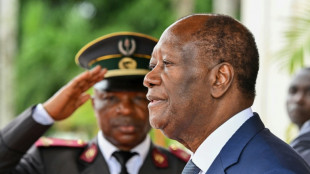
-
 Protesters slam war profiteering, Israel at French air fair
Protesters slam war profiteering, Israel at French air fair
-
Belarus frees jailed opposition leader after appeal from US

-
 Medvedev dispatches home hope Zverev to meet Bublik in Halle final
Medvedev dispatches home hope Zverev to meet Bublik in Halle final
-
Nigeria receives over 100 looted artifacts from Netherlands

-
 Hundred hero Pope answers England's prayers as Bumrah strikes in first Test
Hundred hero Pope answers England's prayers as Bumrah strikes in first Test
-
Bellingham strikes as Dortmund sink Sundowns in Club World Cup thriller


German parliament to vote on huge spending boost for defence, infrastructure
German lawmakers will vote Tuesday on a massive spending boost for defence and infrastructure proposed by chancellor-in-waiting Friedrich Merz amid concern over the United States' commitment to Europe's security.
The hastily drawn plans represent a radical departure for a country traditionally reluctant to take on large amounts of debt or to spend heavily on the military, given the horrors of its Nazi past.
But Merz, 69, whose conservative CDU/CSU alliance won an election last month, has urged swift action as concerns grow that the United States' decades-old commitment to European defence is faltering under President Donald Trump.
In an interview with public broadcaster ARD on Sunday, Merz said the "situation has worsened in recent weeks", citing Trump's overtures to Russia to end the Ukraine war and his wavering commitment to NATO.
"That is why we have to act fast," Merz said.
Merz's plans envisage exempting defence spending from the country's strict debt rules when it exceeds one percent of GDP and setting up a 500-billion-euro ($545-billion) fund for infrastructure investments.
As well as boosting domestic investments, the spending package -- dubbed a fiscal "bazooka" by German media -- would free up an extra three billion euros ($3.3 billion) of support for Ukraine in 2025.
Outgoing Foreign Minister Annalena Baerbock said the plans were a "strong signal that Germany is serious about its own security, about the security of Ukraine and about the security of Europe".
The massive funding boost represents "a fiscal sea change for Germany," wrote Holger Schmieding of Berenberg Bank.
He added that Merz and his team "are rising to the challenges which Germany is facing in times of almost unprecedented geopolitical upheaval for Europe".
- Political limbo -
Germany is currently in political limbo, with Merz embroiled in negotiations to form a coalition with the Social Democrats (SPD) of outgoing Chancellor Olaf Scholz.
The conservatives and the SPD agreed the plans to boost the country's under-resourced military and ailing economy as part of their initial coalition talks in early March.
But instead of waiting until the new government is formed, the parties want to get the spending plans approved by the outgoing parliament, which remains in place until next week.
In the next chamber, the far-right Alternative for Germany (AfD) and the far-left Die Linke -- which both oppose the plans -- would have the numbers needed to block them.
Even in the outgoing parliament, the CDU/CSU and SPD are relying on the support of the Greens to help them reach the two-thirds majority required to modify the debt brake.
The Greens had threatened to withhold their support, but a deal was struck late last week with Merz agreeing that 100 billion euros of the infrastructure fund will be dedicated to climate-protection measures.
Merz on Monday said he was "confident" the plans would be voted through on Tuesday.
The deal hangs on a margin of 31 votes, according to Der Spiegel magazine, which warned that "some departing parliamentarians could take the opportunity to get back at the new government with a no vote".
Ursula Muench, director of the Academy for Political Education, said there was still "significant uncertainty" around the vote.
A failure to achieve the required majority would be a "debacle for the coalition in the process of being formed... and ultimately for Friedrich Merz," she said.
The measures must also still be voted through the Bundesrat, the upper house of parliament, on Friday, where they also require a two-thirds majority.
Coalition negotiations often last several weeks, or even months, in Germany. But Merz has set out an ambitious schedule to have a government in place by Easter or soon after.
If all goes according to plan, the new parliament will vote on whether to appoint him as chancellor on April 23.
W.Mansour--SF-PST


